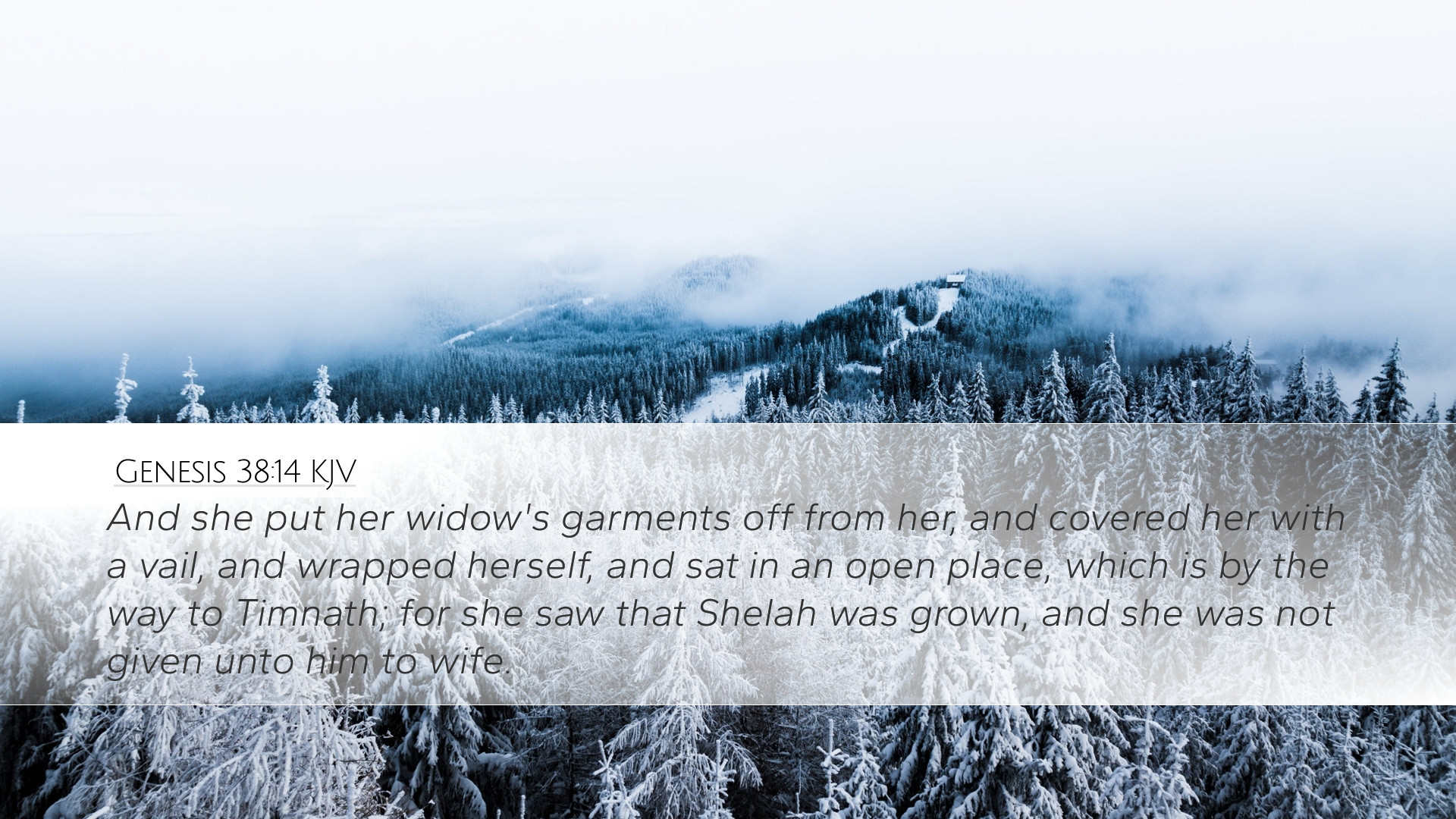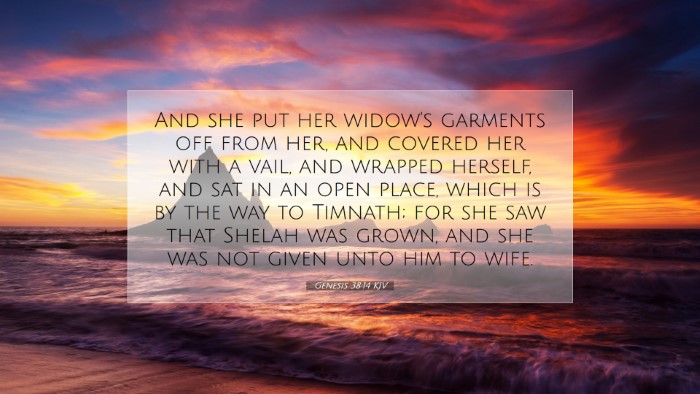Commentary on Genesis 38:14
Genesis 38:14 presents a pivotal moment in the narrative of Judah and Tamar, illustrating themes of responsibility, deception, and divine justice. This verse reads:
"So she (Tamar) took off her widow's garments, and covered her with a veil, and wrapped herself, and sat in an open place, which is by the way to Timnath; for she saw that Shelah was grown, and she was not given unto him to wife."
Contextual Background
The account of Judah and Tamar is set against a broader backdrop of familial and cultural tensions within the Genesis narrative. Judah, one of Jacob's sons, has distanced himself from his family and engaged in decisions reflecting both personal failure and cultural complexities. Following the death of his first two sons, Er and Onan, who were wed to Tamar, Judah delays in fulfilling his duty to provide for her by giving her his remaining son, Shelah. This context lays the groundwork for understanding Tamar's actions as she seeks justice and recognition within a patriarchal society.
Analysis of Key Themes
-
The Role of Women:
Tamar's actions can be seen as a reflection of her desperate situation. As noted by Matthew Henry, women in biblical times often had limited rights, and their status was largely dependent on their husbands. Tamar's plan to disguise herself and approach Judah signifies a bold assertion of agency in a patriarchal context, where she sought to secure her future and lineage.
-
Deception and Truth:
Albert Barnes emphasizes the irony in Tamar's deception, as her act of disguising herself raises questions about moral ambiguity in narratives of divine purpose. The veil Tamar dons symbolizes both her cultural role as a widow and the duplicity inherent in her plan. The narrative suggests that through deceptive means, Tamar brings about the continuation of Judah's line, a lineage that ultimately leads to significant biblical figures, further complicating the morality of her actions.
-
Judah’s Character Development:
Judah's response to Tamar's actions can be interpreted as a development in his character. Initially, he is portrayed as negligent, failing to provide for Tamar appropriately. However, as the narrative unfolds, Judah confronts the consequences of his actions, a theme pointed out by Adam Clarke. His eventual acknowledgment of Tamar’s righteousness in contrast to his own wrongdoing becomes a significant moment of transformation, highlighting God's sovereign work through flawed individuals.
-
Divine Justice:
The actions of Tamar not only underscore her plight but also invoke discussions about divine justice. The narrative illustrates how God can bring about His purposes through unexpected and even unconventional means. The lineage resulting from Tamar and Judah leads to the Davidic line and ultimately to Jesus Christ, underscoring that God's plans often transcend human understanding and morality.
Theological Reflections
In Genesis 38:14, we see a profound intersection of human folly and divine providence. The complexities of moral decisions made by Judah and Tamar lead to a divine plan that encompasses grace and redemption. The act of Tamar signifies not only her struggle but also her faith in God's ability to fulfill His promises, even through unconventional and morally ambiguous actions.
This passage invites pastors and theologians to consider how stories of struggle and redemption can resonate with contemporary congregants. It offers an opportunity to reflect on the roles of women in the church and the broader implications of justice and equity within a community of faith.
Conclusion
Genesis 38:14 serves as a microcosm of significant biblical themes, including the role of women, the complexities of human morality, and the assurance of divine justice. By engaging deeply with this text, pastors and scholars can inspire a richer understanding of God's intricate plan and the often-unforeseen ways He brings about His purposes in the lives of those He has chosen.


